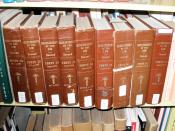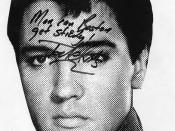Currently, there are many assortments of legal protectors for companies to safeguard their intellectual property. For example, the Uniform Trade Secrets Act grants protection for 'trade secrets"/products (design, data, lists, or other business secrets) that distinguishes the product from its competitor. Intellectual property is also protected by the Economic Espionage Act in which the protects exposure of trade secrets via the internet and compromising of online commerce, Also, there are patents and cyber patents that protect the work of inventors and writers from infringement filed with the United States Patent and Trademark Office (PTO). In 1980, an amendment to the Copyright Act of 1976, included computer programs to the list of tangible items enacting the Computer Software Copyright Act.
BUG, Inc. designs, manufactures, and sells electronic recording devices to law enforcement agencies and therefore warrant just as many reasons as there are available to protect their "trade secret". According to the Uniform Trade Secrets Act, it is legitimate for BUG, Inc.
to sue Canadian based WIRETAP for misappropriation and present criminal charges against Steve for the theft and copyright infringement. The violation of the Espionage Act is punishable by law of criminal penalties and punitive damages fine of up to $10 million per act as well as 25 years for a foreign countries participation of this crime. In addition to this violation, WIRETAP, Inc. could be held responsible for repayment of profits to Bug, Inc., impoundment and destruction of the infringed product, injunction, and up to $150,000 for statutory damages based on the No Electronic Theft Act (NET Act). According to Cheeseman, since Steve was sent to 'willfully infringe a copyright for WIRETAP, Inc., for commercial advantage and financial gains, there is a criminal penalty that includes imprisonment for up to one year as well as a fine of...


